7 Mole Mysteries Unraveled: From Mexico’s Most Flavorful Sauce to Your Kitchen!
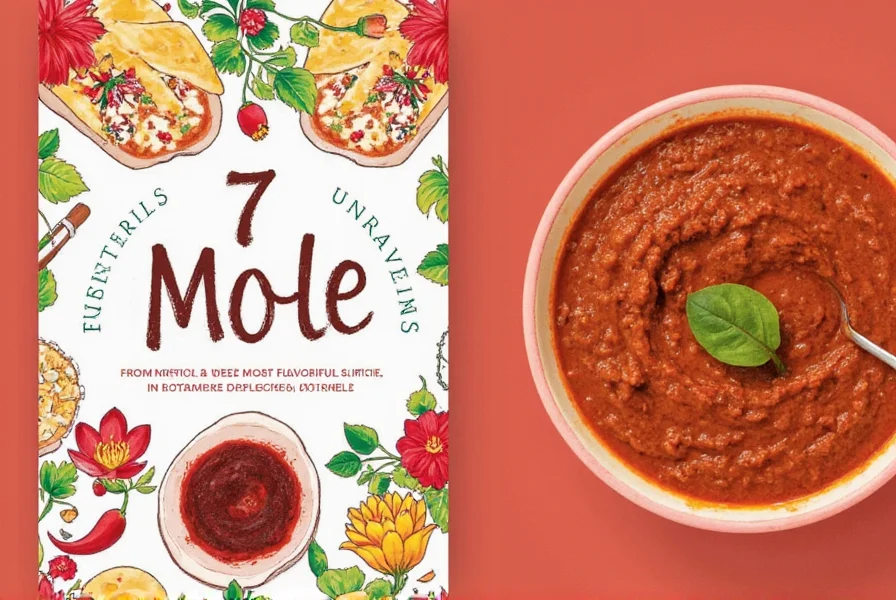
Have you ever tried mole? If not, you're missing out on one of the most complex and delicious sauces that Mexico has to offer. Known for its rich, layered flavor profile that blends sweet, savory, spicy, and nutty notes, mole (pronounced MOH-lay) is more than just a condiment — it's a celebration of culinary tradition.
Table of Contents
- What Exactly Is Mole?
- The History Behind Mole
- Types of Mole in Mexico
- How to Make Mole at Home
- Buying Guide: Choosing the Best Mole
- Creative Ways to Use Mole in Your Cooking
- Storing and Preserving Mole
- Final Thoughts
What Exactly Is Mole?
Mole (from the Nahuatl word *molli*, meaning “sauce” or “mix”) is a traditional Mexican sauce made from a blend of ingredients including dried chiles, nuts, seeds, spices, chocolate, and sometimes fruits or bread. The result? A deep, nuanced sauce with hundreds of variations depending on the region and family recipe.
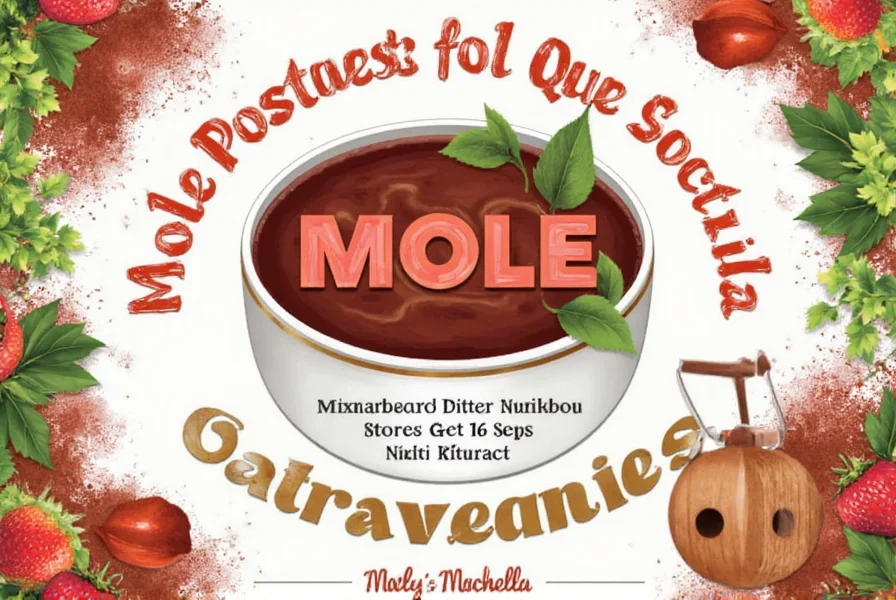
The key to mole is balance. It shouldn’t be overly spicy or bitter. Instead, it should deliver a harmony of flavors that unfold slowly on your palate — from smoky heat to subtle sweetness and earthy richness.
The History Behind Mole
Mole’s origins are as layered as its taste. Legend has it that mole poblano was invented by nuns in a Puebla convent during colonial times when they needed to prepare a special dish to honor a visiting bishop. In their haste, they combined what they had on hand — chiles, chocolate, almonds, and spices — creating a magical sauce that won over the clergyman.
But the roots of mole stretch back long before Spanish colonization. Indigenous peoples of Mexico were already making sauce-like dishes using local ingredients like chili peppers, tomatoes, and cacao. With time, European influences brought almonds, cinnamon, and bread into the mix, transforming mole into the sophisticated dish we know today.
Types of Mole in Mexico
Mexico boasts many regional varieties of mole. Here’s a quick breakdown of the most famous ones:
| Type of Mole | Origin | Key Ingredients | Flavor Profile |
|---|---|---|---|
| Mole Poblano | Puebla | Ancho & mulato chiles, sesame seeds, almonds, raisins, plantains, chocolate | Deeply savory, slightly sweet, mildly spicy, with a hint of chocolate |
| Mole Negro | Oaxaca | Chilhuacle chiles, banana leaves, blackened tortillas, spices | Smoky, rich, almost coffee-like, with an intense dark color |
| Mole Verde | Oaxaca | Tomatillos, green chiles, pumpkin seeds, fresh herbs | Grassy, tangy, herbaceous |
| Mole Amarillo | Oaxaca | Guajillo chiles, yellow corn tortillas, garlic, spices | Bright, citrusy, slightly sweet |
| Mole Coloradito | Oaxaca | Ancho chiles, plantains, raisins, peanuts | Sweet, fruity, and moderately spicy |
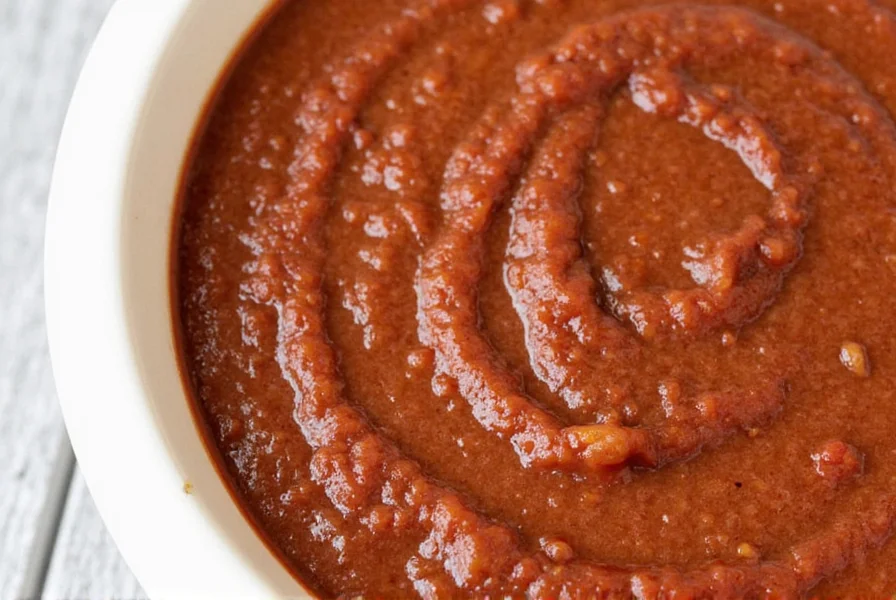
How to Make Mole at Home
Making mole may seem intimidating at first, but once you break down the process into steps, it becomes totally manageable. Here’s a simplified guide to making mole poblano from scratch:
- Raise the Heat: Toast dried chiles (like pasilla, mulato, and ancho) in a dry pan until fragrant but not burnt.
- Soak & Blend: Remove stems and seeds, soak chiles in hot water, then blend with tomatoes, onion, garlic, and spices.
- Fry the Base: Cook the blended sauce with lard or oil, stirring constantly to avoid sticking.
- Add Texture: Stir in toasted nuts, bread, and spices like cinnamon and clove.
- Simmer Slowly: Add chicken broth and simmer for 30–60 minutes until thick and aromatic.
- Sweet Finish: Finally, melt in some dark chocolate for that signature depth.
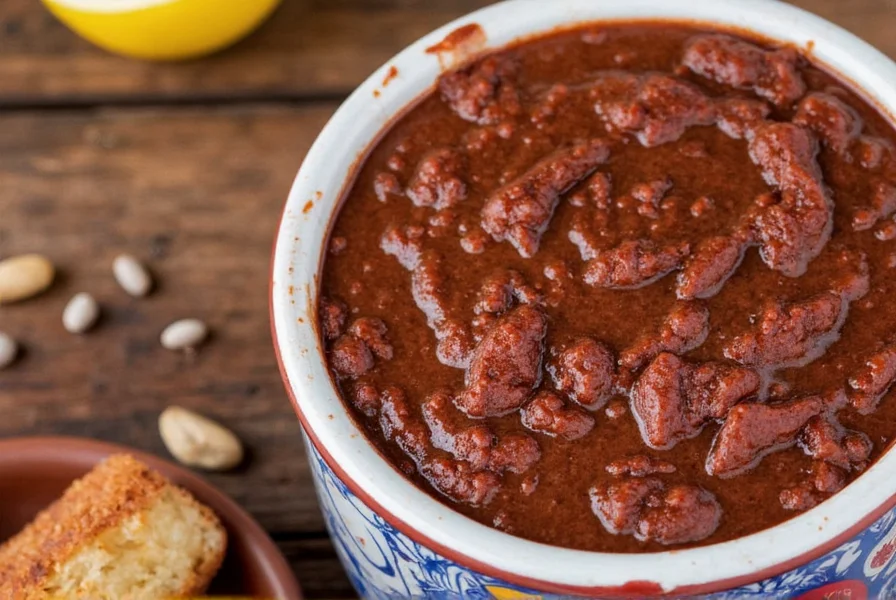
Pro Tip: Don't rush the process! Low and slow is the key to developing flavor. And yes, you can use a blender — no mortar and pestle required unless you want extra authenticity points!
Buying Guide: Choosing the Best Mole
If making mole from scratch seems too time-consuming, don’t worry — there are plenty of high-quality ready-made mole pastes and sauces available. Here’s how to choose the best one for your needs:
| Product | Features | Advantages | Best For | Price Range |
|---|---|---|---|---|
| Don Rogelio Mole Paste | Authentic Oaxacan recipe, handmade, no preservatives | Rich flavor, easy to reconstitute, shelf-stable | Traditionalists who want minimal effort | $8–$12 / 8 oz |
| La Costeña Ready-to-Use Mole | Convenient canned version, mild spice level | Quick and consistent results, perfect for beginners | Weeknight meals or simple tacos | $3–$5 / 15 oz can |
| Mi Abuelita Mole Powder | Dry powder mix, just add water or broth | Great for storage, versatile for various dishes | Cooks looking for flexibility and convenience | $4–$6 / 8 oz pouch |
| Del Real Foods Organic Mole | Organic, gluten-free, dairy-free | Health-conscious eaters, clean ingredient list | Vegans and dietary-restricted diets | $9–$12 / 8 oz jar |
| Casa de Toño Mole Craft Collection | Artisanal, small-batch production, premium quality | Superior taste, gourmet appeal, gift-worthy | Special occasions or food lovers | $12–$18 / 5 oz jar |
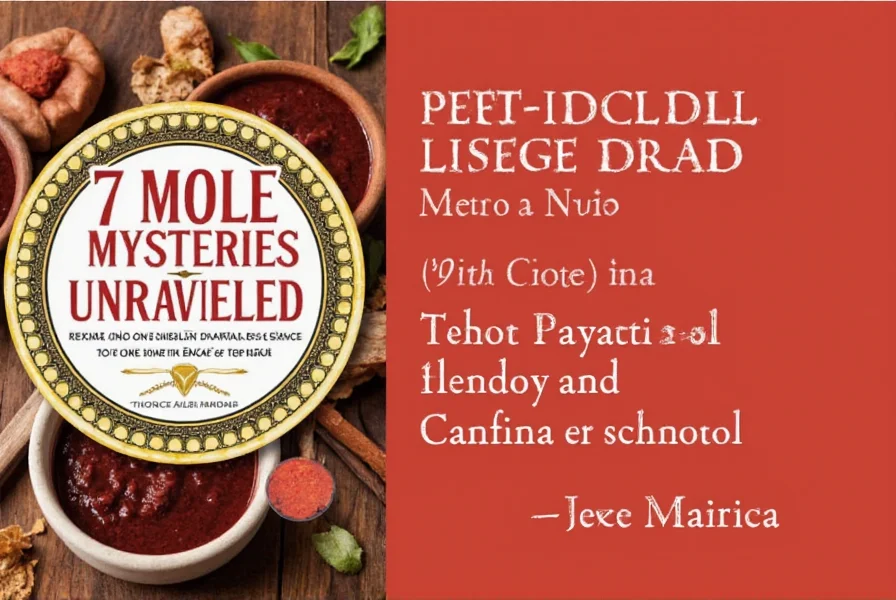
When shopping for mole, always check the ingredient list. The fewer additives, the better. Look for recognizable ingredients like chiles, almonds, and spices rather than artificial preservatives or flavorings.
Creative Ways to Use Mole in Your Cooking
Mole isn’t just for enchiladas anymore! Try these fun and flavorful ways to incorporate mole into your meals:
- Mole Tacos: Slather it over shredded chicken, pork, or tofu for a rich taco filling.
- Mole Empanadas: Use it as a filling base with cheese or meat.
- Mole Pizza: Swap tomato sauce for a smooth mole for a surprising twist.
- Mole Pasta: Mix with roasted vegetables and toss for a fusion-inspired meal.
- Mole Marinade: Use as a rub for grilled meats or roasted veggies.
- Mole Mac 'n' Cheese: Stir into béchamel for a bold upgrade.

Want a showstopper dessert idea? Drizzle mole sauce over vanilla ice cream or brownies for a sweet and spicy treat!
Storing and Preserving Mole
Whether homemade or store-bought, mole can last quite a while if stored properly:
- Refrigeration: Store in an airtight container for up to 5 days.
- Freezing: Freeze in portions for up to 3 months. Thaw overnight in the fridge before reheating.
- Canning: Some artisan mole pastes come shelf-stable; follow package instructions.
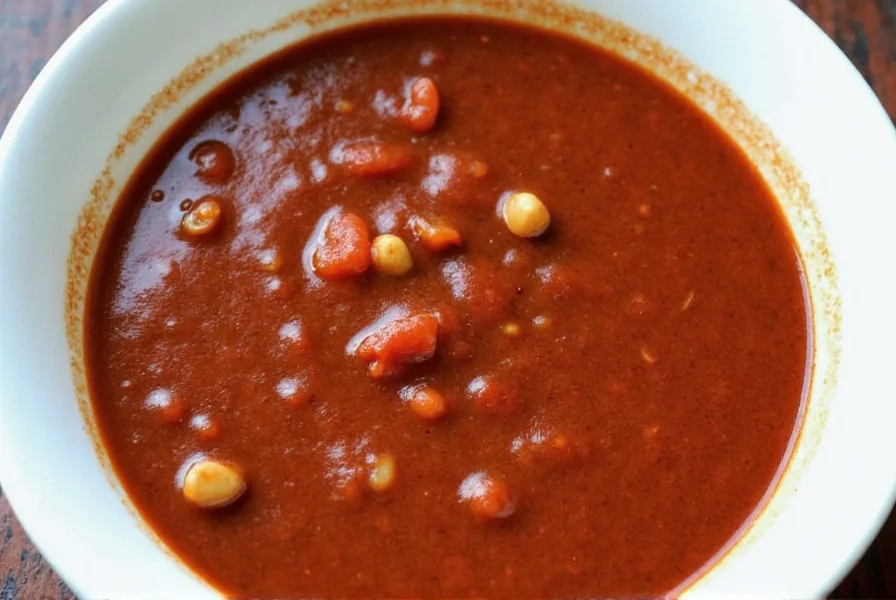
Pro Tip: Label your containers with dates and type of mole so you never guess what’s inside again!
Final Thoughts
Mole is more than just a sauce — it's a love letter to Mexican culture, history, and culinary craftsmanship. Whether you make it yourself or pick up a trusted brand from the store, mole deserves a place in every adventurous cook’s kitchen.
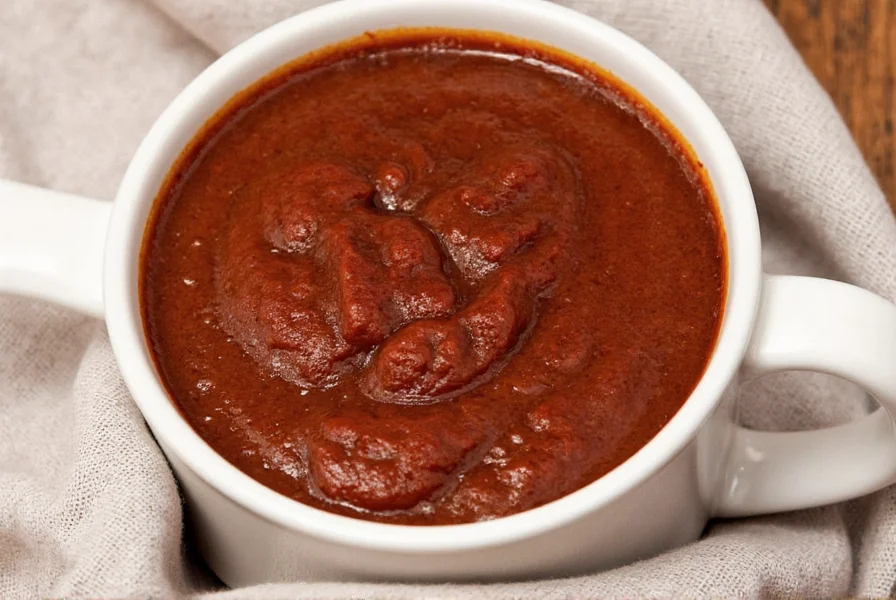
Ready to take your spice game to the next level? Grab your favorite mole and start experimenting. You might just discover your new favorite dish — and impress your friends in the process!

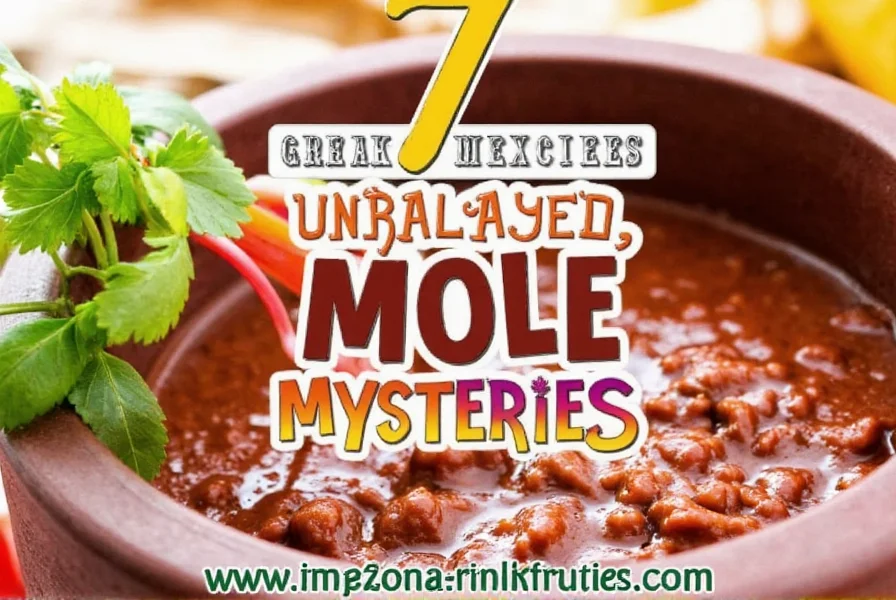









 浙公网安备
33010002000092号
浙公网安备
33010002000092号 浙B2-20120091-4
浙B2-20120091-4